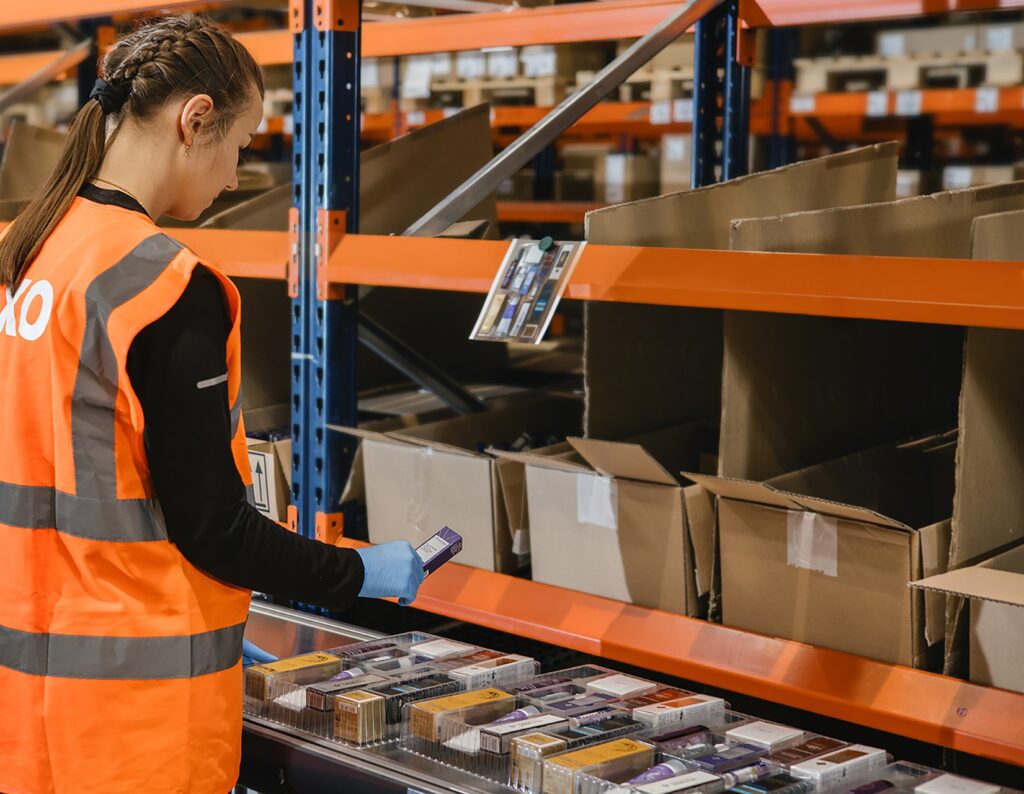Evolution of Logistics in Supply Chains
Logistics has undergone a significant transformation, evolving beyond mere transportation. Nowadays, it embodies a wide array of value-added services (VAS) that are becoming essential for maintaining a competitive edge. From co-packing and kitting to ensuring quality control and providing sustainable packaging solutions, these services are redefining how goods are moved and stored.
This change signifies more than just a trend; it marks a fundamental shift in approach to managing the supply chain. As consumer expectations rise and retail environments become more dynamic, logistics must adapt quickly to encompass these growing demands. According to observations from industry leaders, VAS has transitioned from a supplementary offering to a focal point of modern logistics strategy.
Flexibility: The Cornerstone of Modern Logistics
Flexibility has become the operational mantra for contemporary supply chains. Shorter lead times coupled with fluctuating demand make adaptability a necessity. Logistics providers are increasingly expected to tackle more complex challenges, whether that involves assembling promotional displays for product launches or adjusting fulfillment strategies to cater to varying client models such as B2B and D2C.
For instance, an industry leader noted that logistics functions do not operate in isolation; instead, they are integrated within the larger manufacturing lifecycle—from raw material provision to last-mile delivery. This insight underscores a trend where logistics partners transition into more consultative roles, offering tailored solutions rather than one-size-fits-all services.
Quality Assurance and the Customer Experience
There’s a growing trust placed in logistics providers regarding product quality assurance. This responsibility extends to ensuring products uphold brand integrity and meet retail standards. One prominent third-party logistics provider shared a recent success: assisting a major supplier in overcoming quality control issues for tens of thousands of items, lessening defects before products reached retail shelves. This initiative reflects how VAS in logistics now includes rigorous product inspection and adjustment processes.
Furthermore, logistics firms are meeting ambitious performance metrics. Take, for example, a logistics service that consistently delivers thousands of B2C orders monthly while adhering to key performance indicators that prioritize speed and accuracy. The fine-tuned operation exemplifies how detailed planning adds value to logistics by keeping brands intact and maintaining customer satisfaction.
Sustainability: An Operational Imperative
In today’s market, sustainability can’t be an afterthought; it’s a driving factor in logistics strategies. Companies recognize that environmental responsibility is no longer just a compliance issue but a crucial aspect sought after by consumers. For example, a logistics provider detailed its commitment to sustainability through reducing single-use plastics by 97% and enhancing recyclability across packaging. These efforts showcase how logistics must innovate to align with broader environmental goals.
The Importance of Integration in Logistics
Today’s clients demand more than isolated logistics. They seek comprehensive solutions that seamlessly weave together inbound logistics, warehousing, inventory management, and outbound distribution. Industry experts highlight that logistics providers must cultivate collaborations within their networks to deliver end-to-end services. This integration is paramount, especially as logistics continues to adapt in the face of unforeseen challenges and evolving consumer requirements.
Strategic Collaboration: The Path Forward
Value-added logistics signifies a distinct shift toward strategic collaborations rather than mere transactional relationships. Flexibility, sustainability, quality control, and integration are now fundamental to addressing complex supply chain demands. Companies are looking for partners who can swiftly scale capacity for busy seasons, integrate sustainable practices into existing operations, and align closely with business objectives.
Key Takeaways
The logistics domain is witnessing a fundamental shift where value-added services are becoming pivotal to fulfilling industry demands. Flexibility in operations, quality assurance in delivery, and sustainability in practices are not just perks; they are necessities in the modern logistics landscape.
While industry insights and expert perspectives are informative, nothing beats the value of firsthand experience. On GetTransport.com, users can explore various cost-effective logistics solutions for their needs, whether planning a move or dispatching goods. Affordable cargo transportation awaits, tailored to meet diverse needs across the globe, from home relocations to large cargo deliveries.
Considering the growing importance of these logistics trends, now is the time to secure your transport solutions with a partner who understands the changing landscape. The versatility, transparency, and competitive pricing offered by GetTransport.com cater directly to these evolving logistics requirements. Embracing convenience and reliability is key, allowing customers to navigate their logistics challenges without breaking the bank. For your next project, remember: Book your Ride at GetTransport.com.

